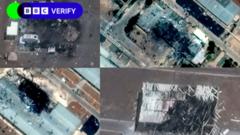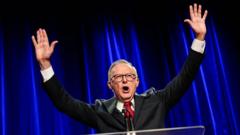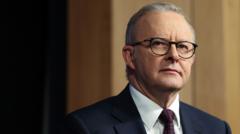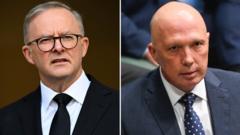In a surprising turn of events, Australia's political landscape is shifting as the Liberal-National coalition has reunited just a week after their split, signaling a renewed commitment to collaboration ahead of upcoming elections.
Australia's Coalition Revives as Liberals and Nationals Reunite

Australia's Coalition Revives as Liberals and Nationals Reunite
The Liberal-National coalition is back in action after a brief split, with plans for a new shadow cabinet and key policy negotiations.
After recent turmoil, Australia's Liberal-National coalition has rekindled its partnership, marking a notable political development just one week after the two main conservative parties parted ways. The reunion was reportedly prompted by discussions between Liberal leader Sussan Ley and Nationals leader David Littleproud, who recognized the need for collaboration to address key policy matters.
Local media outlets anticipate that Ley will host a press conference on Wednesday to introduce a revised shadow cabinet that will blend members from both parties, aiming to strengthen their political standing. The breakdown of the coalition occurred last Tuesday as disagreements over significant issues led Littleproud to announce the split, though he expressed a commitment to rebuild ties for future electoral campaigns.
Ley's ascension followed former leader Peter Dutton's inability to secure a victory in recent elections, which saw the Labor Party extend its reign for a second consecutive term. She has articulated her goal of steering the Liberals back towards a centrist-right position, a move that will likely include addressing the tensions between the two parties, especially related to climate change and energy policies.
According to reports from ABC, the recent negotiations suggest that both parties are stepping back from a prior plan to develop seven nuclear power plants but may advocate for lifting the national ban on nuclear energy altogether. Additional agreed-upon policies will focus on enhancing regional infrastructure spending, improving internet and mobile services in rural areas, and fostering supermarket competition.
The Liberal-National alliance, which has historical roots dating back to the 1940s, has witnessed several formations and dissolutions over the decades, with the last significant split occurring almost 40 years ago in 1987. This latest reconciliation reflects an ongoing necessity for the parties to adapt and unify in anticipation of a challenging political landscape ahead.





















